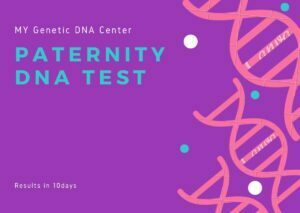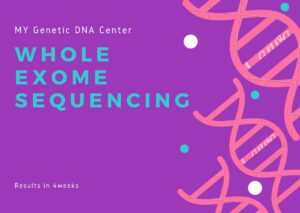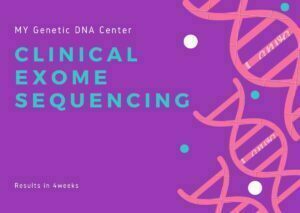CONNEXIN 26 MUTATION DETECTION:
The Connexin 26 Mutation Detection is a genetic test that identifies mutations in the GJB2 gene, which encodes the Connexin 26 protein critical for normal hearing. Connexin 26 forms channels in the inner ear that allow ions and small molecules to pass between cells, enabling proper auditory signaling. Mutations in this gene disrupt these channels and often lead to congenital or early-onset non-syndromic hearing loss. By analyzing specific genetic variants, doctors can determine whether a patient’s hearing impairment has a hereditary cause and differentiate it from environmental or acquired factors.
The test involves a simple saliva or blood sample and provides valuable information for diagnosis, early interventions, and treatment planning. Families benefit from understanding carrier status, inheritance patterns, and recurrence risks, which helps with family planning and informed healthcare decisions. Connexin 26 Mutation Detection also empowers healthcare providers to recommend targeted therapies, hearing aids, cochlear implants, and rehabilitative strategies, ensuring personalized care that optimizes auditory function and quality of life.
What is Connexin 26 Mutation Detection?
This is a genetic test that identifies mutations in the GJB2 gene, which encodes the Connexin 26 protein responsible for normal hearing function. This protein forms channels in the inner ear that allow the passage of ions and small molecules, essential for auditory signaling. Mutations in Connexin 26 disrupt these channels, leading to congenital or early-onset hearing loss. By detecting these mutations, doctors can determine whether hearing impairment has a genetic origin and guide early interventions, personalized treatment plans, and family counseling.
This protein plays a crucial role in the inner ear by forming channels that allow ions and small molecules to pass between cells, supporting normal hearing function. Mutations in the Connexin 26 gene can disrupt these channels, leading to congenital or early-onset hearing loss. By detecting these mutations, the test helps doctors diagnose the genetic cause of hearing impairment and guide counseling, early interventions, and treatment planning for affected individuals.
Who should undergo Connexin 26 Mutation Detection?
Doctors recommend this test for individuals with unexplained hearing loss, particularly congenital or early-onset cases, and for families with a history of hereditary hearing impairment. Infants, children, and adults experiencing non-syndromic hearing loss benefit from testing, as identifying the genetic cause helps plan therapy, rehabilitation, and preventive strategies. The test also aids in evaluating carriers in the family who may not show symptoms but can pass the mutation to future generations. Individuals who experience unexplained hearing loss, particularly congenital or early-onset cases, should undergo Connexin 26 Mutation Detection.
Infants and children who show signs of non-syndromic hearing loss benefit from early genetic testing, which allows timely interventions such as hearing aids, cochlear implants, or speech therapy. Adults who develop sudden or progressive hearing impairment without clear environmental causes may also consider testing to determine a potential genetic origin. Additionally, prospective parents with a family history of hearing loss can use this test to understand carrier status and inheritance patterns, supporting informed decisions regarding family planning. By targeting individuals with unexplained, early-onset, or familial hearing loss, Connexin 26 Mutation Detection provides critical insights that guide personalized management, early intervention, and preventive strategies for affected families.
How does the test help in family planning?
This Connexin 26 Mutation Detection helps prospective parents understand their genetic risk of passing hearing loss to their children. If both partners carry mutations, doctors can explain the likelihood of a child inheriting the condition. Families can explore options such as genetic counseling, prenatal testing, or assisted reproductive technologies to make informed reproductive decisions. Knowing carrier status also allows relatives to assess their risk and take preventive or early intervention measures. Connexin 26 Mutation Detection helps families make informed reproductive decisions by identifying carriers of GJB2 gene mutations that can cause hereditary hearing loss.
When both parents carry pathogenic variants, doctors can calculate the risk of passing the mutation to their children and explain the likelihood of congenital or early-onset hearing impairment. This information allows families to consider options such as prenatal testing, preimplantation genetic diagnosis, or assisted reproductive technologies to reduce the risk of having affected children. The test also guides counseling for siblings and extended family members, enabling them to understand their own carrier status and make informed health decisions. By providing clear insights into inheritance patterns and genetic risks, Connexin 26 Mutation Detection empowers families to plan pregnancies with greater confidence and take proactive steps to ensure the health and well-being of future children.
How should I prepare for the test?
Patients should provide a blood or saliva sample and supply detailed personal and family medical history. No fasting or special preparation is required. Doctors may request information about previous hearing tests, medications, or environmental exposures that could affect interpretation. Following proper collection instructions, avoiding contamination, and submitting an adequate sample ensures accurate genetic analysis. Preparing for Connexin 26 Mutation Detection involves providing a blood or saliva sample and supplying complete personal and family medical history.
The Patients should gather information about previous hearing assessments, medications, and any known genetic conditions in the family, as this information helps doctors interpret results accurately. The test does not require fasting or stopping medications unless a doctor specifically instructs otherwise. Following proper sample collection instructions, such as avoiding contamination and ensuring the sample reaches the laboratory in optimal condition, is essential for accurate results. Patients should also communicate any recent illnesses, procedures, or environmental exposures that could affect testing. By preparing thoroughly and providing comprehensive information, patients enable healthcare providers to deliver precise genetic analysis, guide early interventions, and offer informed counseling for both medical management and family planning decisions.
Which mutations does the test analyze?
The test analyzes known pathogenic variants of the GJB2 gene associated with non-syndromic hearing loss. It includes common missense, nonsense, and frameshift mutations that disrupt the Connexin 26 protein function. By targeting these mutations, doctors can identify carriers, confirm the genetic cause of hearing impairment, and provide precise recommendations for management and counseling.
Is the test painful or risky?
this test Connexin 26 Mutation Detection carries minimal risk and causes little discomfort. Blood draws may produce a brief sting or minor soreness, while saliva collection is painless. The test does not involve surgery, radiation, or invasive procedures, making it safe for infants, children, and adults. Proper sample handling ensures accurate results without introducing additional health risks.
What do abnormal results indicate?
Abnormal results indicate the presence of pathogenic mutations in the Connexin 26 gene that may cause hearing loss. Detection of one or two mutated copies confirms a genetic basis and helps determine inheritance patterns, typically autosomal recessive. Doctors use these findings to predict disease progression, guide early interventions, and inform families about recurrence risks in siblings or future children.
Do patients need genetic counseling before or after testing?
Doctors strongly recommend genetic counseling to help patients understand the purpose, implications, and limitations of Connexin 26 Mutation Detection. Pre-test counseling ensures informed consent, while post-test counseling interprets results, explains inheritance patterns, and advises on early interventions or family planning. Counseling also provides emotional support and guidance for families coping with hereditary hearing loss.
Why do doctors recommend Connexin 26 Mutation Detection?
The Doctors recommend this test for individuals with unexplained hearing loss, especially congenital or early-onset cases, or for families with a history of hereditary hearing impairment. Identifying Connexin 26 mutations helps determine whether hearing loss is genetic and provides essential information for prognosis, treatment options, and family planning. The test also helps differentiate genetic hearing loss from other causes such as infections, trauma, or environmental factors, allowing doctors to design precise management strategies for affected patients.
How should I prepare for Connexin 26 Mutation Detection?
Patients typically need to provide a blood or saliva sample for DNA analysis, and no fasting or special preparation is required. Doctors may ask for detailed medical and family history to help interpret the results accurately. Following proper instructions for sample collection, such as avoiding contamination, ensures reliable results. Preparing family medical records, if available, can also assist healthcare providers in understanding inheritance patterns and assessing the risk for relatives.
Which mutations does this test analyze?
This Connexin 26 Mutation Detection analyzes various mutations in the GJB2 gene that can impair protein function and disrupt ion channels in the inner ear. The test targets known pathogenic variants associated with non-syndromic hearing loss, including common frameshift, nonsense, and missense mutations. By evaluating these specific genetic changes, doctors can determine whether a patient’s hearing loss stems from Connexin 26 dysfunction and provide an accurate genetic diagnosis.
Limitations to Connexin 26 Mutation Detection:
The test cannot identify all genetic causes of hearing loss, as other genes may contribute to auditory impairment.
Rare or novel mutations outside the targeted regions of the GJB2 gene may remain undetected.
The test does not detect environmental, infectious, or structural causes of hearing loss.
Connexin 26 Mutation Detection cannot predict the exact severity or progression of hearing impairment in every individual.
Results reflect genetic predisposition but do not guarantee the presence or absence of hearing loss.
The test does not provide information about treatment efficacy or responsiveness to specific therapies.
Doctors must combine test results with audiological assessments, family history, and clinical evaluation to make comprehensive management decisions.
Do patients need genetic counseling before or after this test?
Doctors strongly recommend genetic counseling both before and after Connexin 26 Mutation Detection. Pre-test counseling explains the purpose, limitations, and possible outcomes of the test, ensuring informed consent. Post-test counseling helps families understand the results, inheritance patterns, and implications for siblings or future children. Counseling also provides guidance on early interventions, treatment options, and emotional support for families managing hereditary hearing loss.
How long does it take to get the results?
Laboratories usually provide results within one to three weeks, depending on the number of samples and testing methods. Doctors interpret the results along with audiological assessments, family history, and clinical findings to provide accurate counseling and treatment recommendations. Timely results help families plan interventions such as hearing aids, cochlear implants, or speech therapy efficiently.





